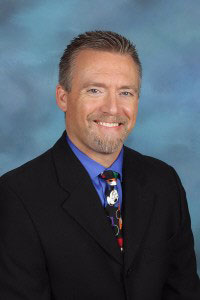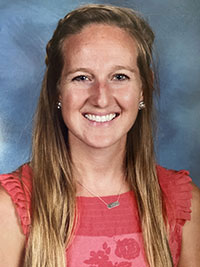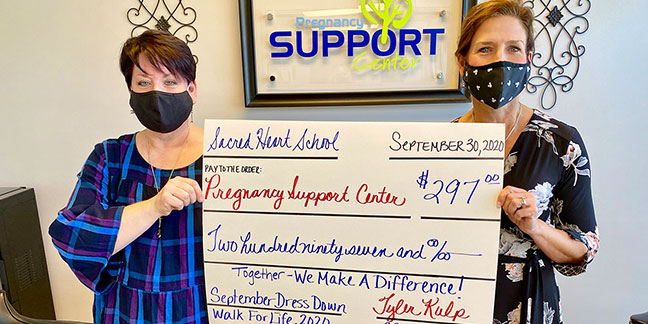Two new principals are joining the leadership at Catholic schools in the Diocese of Charlotte this fall, one at Immaculate Heart of Mary School in High Point and one at St. Michael School in Gastonia.
A third principal position remains open as of press time at Bishop McGuinness High School, where Randy Quarles continues to serve as interim principal. Ryan Schnaith-Ivan is the new principal of Immaculate Heart of Mary School.
Ryan Schnaith-Ivan is the new principal of Immaculate Heart of Mary School.
He spent the past two years as an assistant principal at Ronald E. McNair Elementary in Browns Summit and prior to that he served in administration at Hampton Elementary in Greensboro.
He began his education career as an elementary art teacher in Michigan after graduating from Eastern Michigan University. He earned a master’s degree in counseling from Oakland University and moved to High Point, where he worked as the counselor at Southern Guilford Middle School for more than 10 years.
He left counseling to obtain a school administration license through the High Point University Leadership Academy.
There he earned a master’s degree in school leadership.
He and his wife Maria have two children: a daughter who will be starting eighth grade and loves to play the flute, and a son who will be going into first grade and also loves to read and draw. They are parishioners of Immaculate Heart of Mary Church.
His hobbies include soccer and making things. He has coached high school and middle school soccer for a total of 26 seasons before moving into administration, and now he coaches his son’s team.
At St. Michael School, Michelle Vollman has been getting settled in as principal since starting in the post early last month. Vollman came to Gastonia from Huntersville Elementary, where she taught for four years. She has taught in the classroom since 2012.
She was a founding teacher at Cabarrus Charter Academy, where she served as lead teacher, overseeing curriculum planning and advocating for the teachers and students under her leadership.
She has participated in more than 100 hours of professional development including educational strategies which focus on teaching to the whole child. She also recently achieved Google expert certification – particularly relevant as schools have had to rely on virtual learning and communication tools during the COVID-19 pandemic.
Vollman earned her bachelor’s degree in elementary education from the University of North Carolina-Wilmington, and she is pursuing a master’s degree in educational administration at Queens University in Charlotte.
— Kimberly Bender, Online reporter
 SALISBURY — Students at Sacred Heart School recently celebrated a successful end to their Dress Down Day fundraiser in September. Once a month (usually on a Friday), students pay $2 to dress out of uniform and the collected funds are given to a local charity.
SALISBURY — Students at Sacred Heart School recently celebrated a successful end to their Dress Down Day fundraiser in September. Once a month (usually on a Friday), students pay $2 to dress out of uniform and the collected funds are given to a local charity.
September’s effort benefited the Pregnancy Support Center of Rowan County. Shari Evans, executive director, was grateful to receive the students’ donation of $297.
The project also qualified Sacred Heart School to be a sponsor for the annual Walk for Life in Rowan County Oct. 24.
— Photo provided by Robin Fisher

